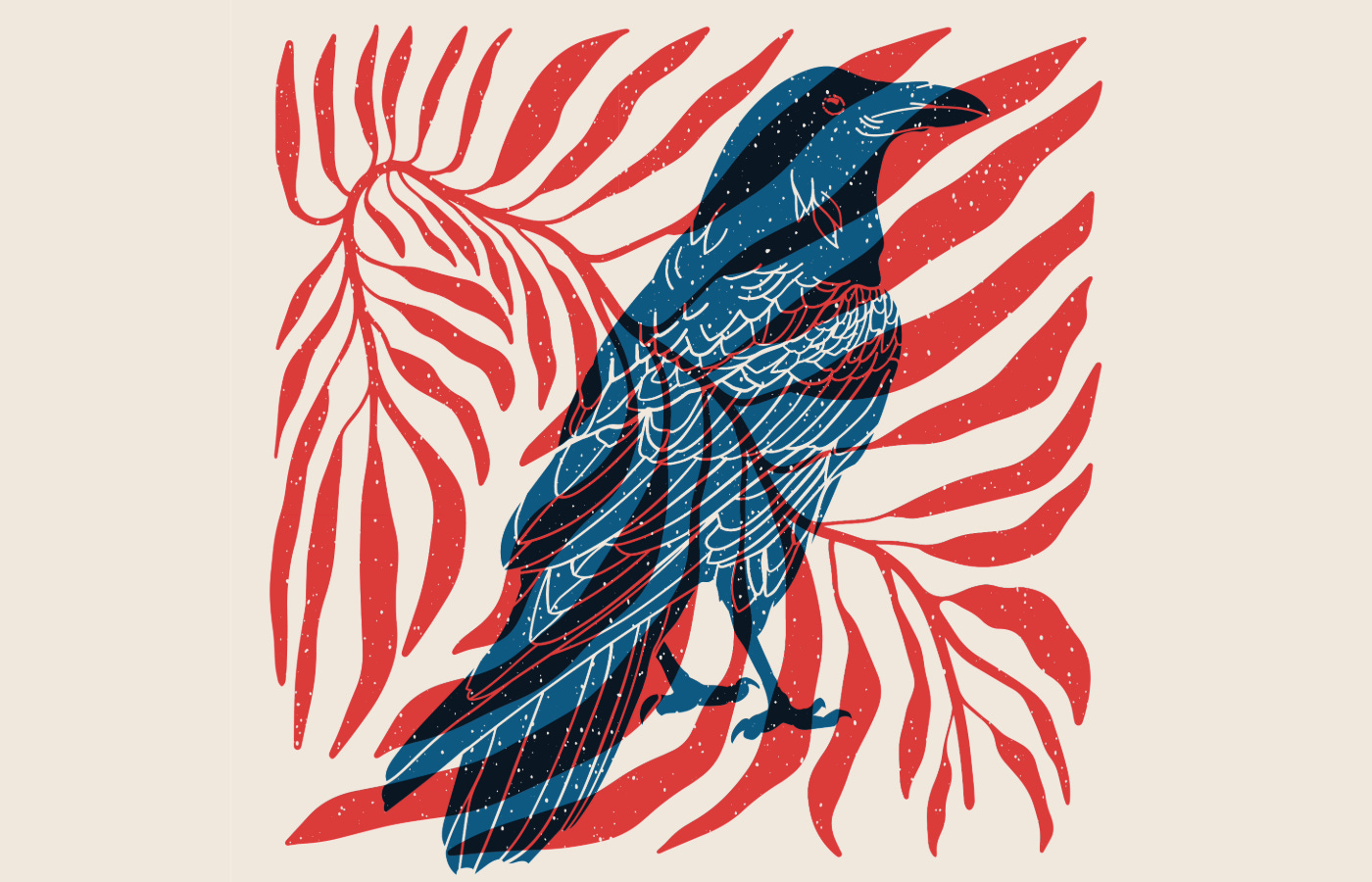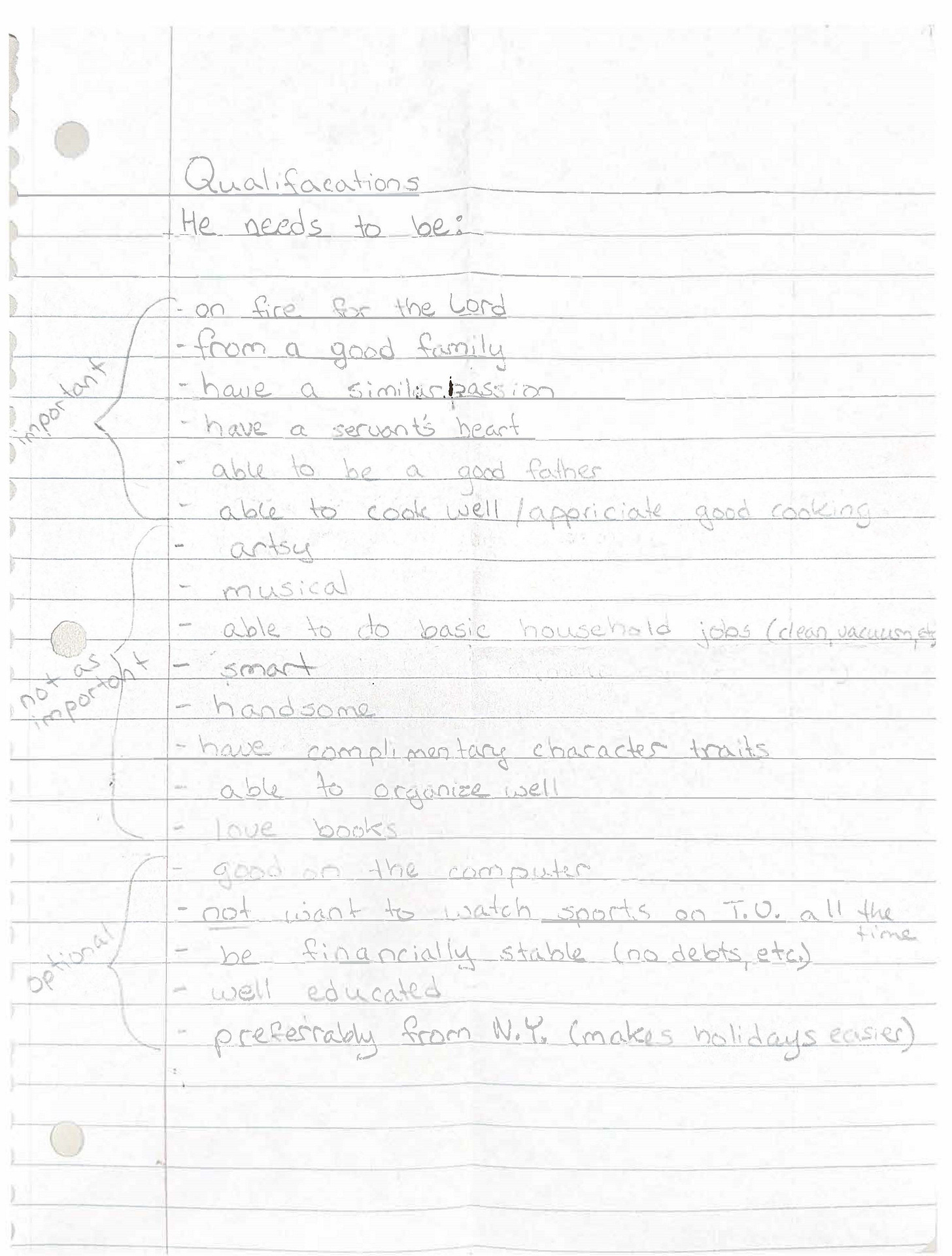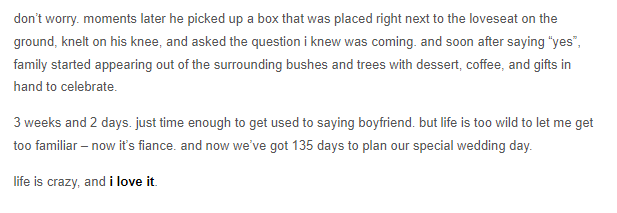Qualifacations [sic]
Increasing our capacity to resist
One of the most bewildering parts of leaving a high-control church or cult is the sudden chasm that opens in the ground beneath your feet.
Whether you grew up in the cult or spent many formative years there, escape means confronting a series of overwhelming questions.
Who am I?
What is my place in the world?
What do I want?
We’re plunged into a second (or delayed) adolescence in which we undergo rapid cognitive and psychological changes. Everything has to be re-examined. Do you actually enjoy those activities that filled your days or was that the cult mindset? Do you really prefer to wear denim jumpers and attend church four times per week or was that an ideal imposed by someone else?
What is the baby and what is the bathwater?
I asked myself these questions when I found a scrap of documentation from my teenage years.
Twenty years later, I can see what I couldn’t see then—almost all of the husband qualifications in the “Important” category were dictated by what my parents wanted.
On fire for the Lord: he will be spirit-filled and attend multiple church services per week.
From a good family: he will come from a white, upper-middle-class family that has been in church ministry for multiple generations.
Have a similar passion: I honestly don’t know what I had in mind here.
Have a servant’s heart: he will be a benevolent patriarch and help with the dishes.
Able to be a good father: he will spend time with our (multiple) kids.
Able to cook well/appreciate good cooking: he will have at least one shared interest with me.
I’m fortunate to have a husband who has stuck with me even though I’m nothing like the woman he met in 2007. Many women who grew up in high-control churches aren’t so lucky.
My peers were expected to commit to a spouse after a few months (or weeks) of courtship. Engagements were short—usually 3-4 months. A girl could turn 18, get married, and find herself pregnant with her first child within the space of a year.
It benefits cults and high-control churches to lock people in before they grow up to ask questions. It’s much easier to keep people ensnared when they know nothing else.
When that chasm opens up before you, resist the urge to retreat into what’s familiar. Learning about who you are and what you believe is essential if you want to avoid falling into another cult.
has written about this extensively, and here they cite Alice Miller, a Swiss psychologist who studied people who resisted the rise of the Third Reich: “Our capacity to resist has nothing to do with our intelligence but with the degree of access to our true self.”1Mayfield continues, “The closer you are to being able to listen to your intuition, your emotions, and your body, the less likely you are to fall under the spell of an authoritarian who promises to keep you safe, be it from your own sinful soul or the apocalypse or whatever marginalized group your culture has decided must fulfill the role of scapegoat.”
Who are you? What is your body telling you? What is your place in the world? These are the questions we must ask ourselves if we are to successfully resist the rise of Nazism in our country.
Alice Miller For Your Own Good: Hidden Cruelty in Child-Rearing and the Roots of Violence 1990 p. 43




I studied Alice Miller as an undergrad earning a bachelor's in Psychology. Completely eye opening.